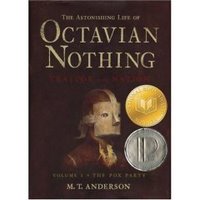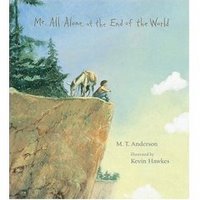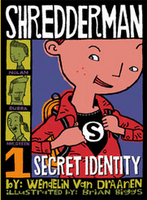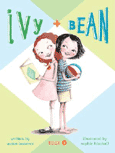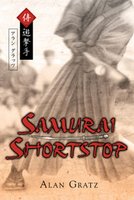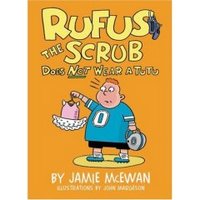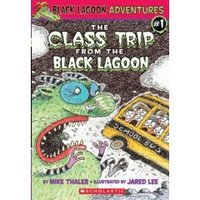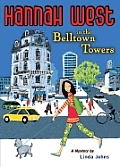
I picked up a couple of mysteries for middle-grade readers about a month ago. One of them, Hannah West in the Belltown Towers by Linda Johns got a little buzz when it was published because the main character is homeless.
Well, that's true. But she's homeless in a very high-class way. She's the daughter of a single mom who loses her job and can't find a comparable one. Mom can't keep their home on her new income as a part-time waitress/freelance writer, so she hooks into her network of well-to-do friends and she and Hannah become housesitters. In The Belltown Towers they have a six-week stint in a classy highrise. This is the beginning of a series and, presumably, Hannah will have an adventure each time she moves.
I actually think this is a promising premise--a young person who has to keep moving and encountering new people. But the circumstances around the homelessness are not very well-developed here. Hannah's living situation is very quickly sketched, and the problems someone without a permanent address must face are only touched on. What's more, Hannah's encounters are going to involve mysteries.The mystery in Belltown Towers is very weak, and the bad guy is extremely obvious. Though I did have trouble at the end figuring out why the bad guy was stealing what she was stealing. But I have to admit that by that point I was only skimming.
However, I wasn't even able to get past the eighth page of the second middle-grade mystery I tried reading. It was also the first in a series.
Writers of mystery serials for kids face a major problem. They are writing about amateur detectives, so to some degree or another their plots are going to be forced and unnatural. Even adult amateur detectives require some suspension of disbelief on a reader's part, and with kid amateurs, the need to suspend is far greater.
I think this is why during the twentieth century, when everyone became interested in specialization and professionalism, anyway, the police procedural became so popular. We can believe a cop is going to run into any number of murderers and worse. But while your average person on the street might stumble into one mysterious situation in a lifetime, it's hard to swallow him or her doing it over and over again. And, as I said, with a child it's even harder to come up with something believable that can happen again and again.
The kid sleuths can't drive to get places. What adult is going to take a child detective seriously? How do these kids get their information? Since they are children, how much background knowledge do they have about anything in order to have a jumping off point for their investigations?
We're talking some big obstacles here.
